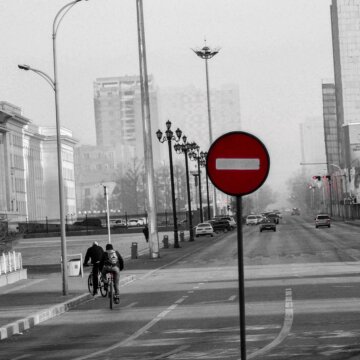- About
- Topics
- Picks
- Audio
- Story
- In-Depth
- Opinion
- News
- Donate
- Signup for our newsletterOur Editors' Best Picks.Send
Read, Debate: Engage.
| topic: | Air Pollution |
|---|---|
| located: | USA, Russia, China |
| editor: | Igor Serebryany |
Air pollution in Russia has been a matter of concern for the country's authorities, the Kremlin said, echoing the remarks of the US President Donald Trump who said during the election debate last week that the air in India, China and Russia was "filthy."
It was a rare case of concord between Moscow and Washington – whose relations have been swiftly deteriorating over recent years.
Solving the problem of air pollution has been at the top of the Kremlin's agenda, its spokesman Dmitry Peskov admitted last Friday.
"It goes without saying that there are places in Russia where the air is filthy. There are such places in all countries. For Russia, this is one of the priorities now. Ecology has been a part of the national development plans," he said.
Peskov added that to solve the large-scale problem of environmental protection the international community must cooperate.
This could be a hidden hint at the US' withdrawal from the global efforts to protect the environment and to slow down global climate change. In 2017, Trump's administration walked out of the 2015 Paris Climate Accord aimed to cap global warming well below 2 degrees Celcius.
Russian President Vladimir Putin signed the nation's own "Clean Air" programme in 2018. The project envisages cutting emissions by 22 per cent by 2024 compared to 2017. It envisages cleaning the environment in Russia's twelve most polluted cities, all but two situated in Siberia.
In mid-October, three Russian state environmental entities called to increase spending on those purposes two-fold, to one trillion rubles (around $13 billion). They pushed for the inclusion of 15 more cities in the programme, stressing that there are territories in the country where air pollution has been "much worse" than in those twelve cities already included. Once again, all the territories proposed are also located east of the Urals.
"For instance, over 70 per cent of the population in Irkutsk region (at the Baikal Lake in southern Siberia) have been exposed to dangerous substances, mostly due to the coal industry's emission," an official in the environmental watchdog Rosprirodnadzor Andrei Nagibin noted.
Meanwhile, the environmentalist proposed to strike off three cities from the existing list because, as they believe, the situation there was not too bad and their part of the money could be redistributed to the zones where the ecological situation is more grave. Russia's capital city of Moscow, once one of the most polluted cities in the country, moved to 16th place in a rating compiled by a network of professional audit, valuation and consulting firms Finexpertiza earlier this year.
Environmental issues have lately been increasingly exposed by the Russian state mass media. "Ten years ago those issues were marginal. Ecology was believed to be a toy of the rich. Now the environmental issues have been all over the news," head of the Russian Ecological Information Bureau Angelina Davydova says.
Last week, at the Valdai International Discussion Club, President Vladimir Putin urged Russian citizens and the international community to limit consumption in order to ease the burden on the environment and to "preserve our common home for the generations to come." He warned that the Earth otherwise could become "another Venus" and cited an opinion that the current coronavirus pandemic could be a result of "unrestricted consumption" and nature's response to its "over-exploitation."
"I want to say right away that not everything that is needed (is being done) in the face of such a colossal common challenge," Putin said.
On Saturday, former Russian president and a former prime minister Dmitry Medvedev also said that the government should speed up cleaning of the country from industrial waste and repairing the damage inflicted on the environment.
"Actually, the ecological topic became a key one for the majority of humanity, it came to spotlight of the public consciousness," Medvedev, who currently is the chairman of the ruling United Russia party, told a meeting of the Shanghai Cooperation Organization.
Some experts, however, believe that the growing ecological awareness of the media and officials could be a part of the under-the-rug fight within the elites for the federal shrinking of funding rather than their actual concern about the environment.
"There are cities which are literally suffocating, with their residents unable to see the sun for several weeks in a row. By now, those cities haven't received a single ruble from the federal budget. The participating cities are at risk not to receive funds in 2021 as well," head of the Environmental Committee in the Russian Parliament Vladimir Burmatov warns.
In 2019, the most polluted region in Russia was the Krasnoyarsk territory, with 2.6 million tons of various pollutants emitted there that year.
Image by Erdenebayar Bayansan
